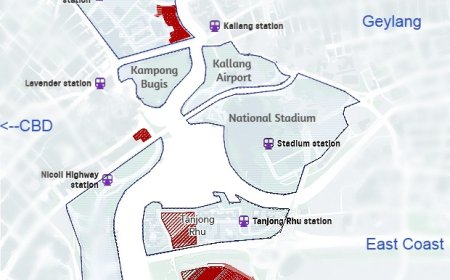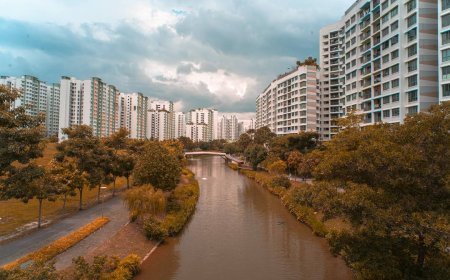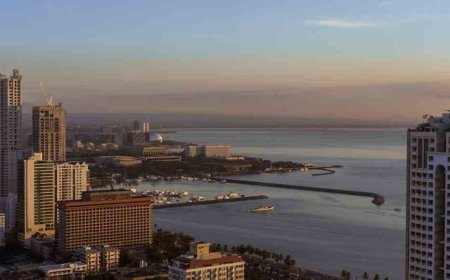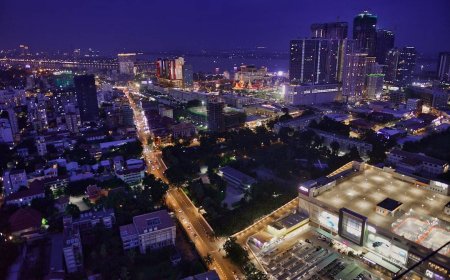Dying Without a Will in Singapore: A Guide to Intestacy Laws
What happens if you die without a will in Singapore? Learn how assets are distributed under the Intestate Succession Act, the impact on families, Muslim inheritance laws, and why estate planning is crucial.

What Happens If You Die Without a Will in Singapore?
A Complete Guide to Intestate Succession, Estate Planning, and Distribution Rules
Estate planning is one of the most important yet often overlooked aspects of financial management. In Singapore, if a person passes away without leaving behind a valid will, their assets will be distributed according to the Intestate Succession Act (ISA). This can lead to unintended outcomes, delays, and even disputes among family members.
This guide explains the rules of intestacy in Singapore, differences between wills and intestacy, implications for Muslims under Syariah law, and practical steps you can take to protect your loved ones.
📌 Key Takeaways
-
Without a will, Singapore’s Intestate Succession Act determines who inherits your assets.
-
The process can lead to delays, higher legal costs, and outcomes that may not align with your wishes.
-
Muslim estates are governed by Muslim inheritance law (faraid), not the ISA.
-
A will allows you to choose executors, decide asset distribution, and appoint guardians for your children.
-
Preparing a will saves your family from uncertainty and potential disputes.
Understanding Intestacy in Singapore
Intestacy refers to the legal situation when a person dies without leaving a valid will. In such cases, Singapore law dictates how assets are distributed among surviving relatives.
Rules of Distribution under the Intestate Succession Act
The following table summarises how an estate is divided when there is no will:
| Survivors | Who Inherits & How |
|---|---|
| Spouse only (no children, no parents) | Spouse inherits everything |
| Spouse + Children | Spouse inherits 50%; children share the other 50% equally |
| Children only (no spouse) | Children inherit everything equally; grandchildren inherit their late parent’s share |
| Spouse + Parents (no children) | Spouse inherits 50%; parents share 50% equally |
| Parents only (no spouse, no children) | Parents inherit everything equally |
| Siblings (no spouse, children, parents) | Siblings inherit equally; nieces/nephews take a deceased sibling’s share |
| Grandparents (no closer relatives) | Grandparents inherit everything equally |
| Uncles and Aunts (no closer relatives) | Uncles and aunts inherit everything equally |
| No surviving relatives | Government inherits entire estate |
⚠️ Important: These rules do not apply to Muslims. Muslim estates follow faraid principles under Syariah law.
Example Scenarios
-
Married with Children – If a man dies intestate leaving behind his wife and two children, his wife gets 50%, while his two children share the remaining 50%.
-
Unmarried, No Children, Survived by Parents – His parents inherit 100% of the estate equally.
-
No Known Relatives – If no surviving relatives are found, the Government inherits the estate.
Muslims and Inheritance in Singapore
The Intestate Succession Act does not apply to Muslims. Instead, Muslim estates are distributed based on faraid (Islamic inheritance law).
-
Distribution is determined by the Syariah Court, which issues an Inheritance Certificate specifying beneficiaries and their respective shares.
-
Typically, male heirs receive double the share of female heirs in the same class of relationship.
-
Muslims may use tools like hibah (gifts) or nuzriah (conditional gifts) to manage asset distribution beyond the faraid framework.
Process of Estate Distribution
Whether there is a will or not, distribution requires legal authorisation.
If There is a Will
-
The appointed executor applies for a Grant of Probate.
-
Executor collects assets, pays debts and taxes, and distributes the estate according to the will.
If There is No Will (Intestacy)
-
A close family member (usually spouse or eldest child) applies for Letters of Administration.
-
The appointed administrator manages and distributes the estate based on intestacy rules.
Common Issues Arising from Dying Without a Will
-
Uncertainty Over Guardianship – Without a will, guardianship of young children may become contested.
-
Delays & Higher Costs – The probate process is longer and more complex without a will.
-
Unintended Distribution – Parents may be excluded if both spouse and children survive.
-
Family Disputes – Relatives may contest entitlement, especially in blended families.
Why Writing a Will Matters
Having a will ensures:
-
Control – You decide how your estate is distributed.
-
Guardianship – You appoint guardians for children under 21.
-
Certainty – Faster distribution and fewer disputes.
-
Flexibility – You can set up trusts, make charitable donations, or protect vulnerable dependents.
Comparison: Will vs Intestacy
| Factor | With a Will | Without a Will (Intestacy) |
|---|---|---|
| Asset distribution | According to your wishes | According to ISA rules |
| Executor/Administrator | Your chosen executor | Court-appointed administrator |
| Guardianship of children | Chosen by you | Decided by court |
| Costs & time | Generally lower & faster | Higher costs & longer delays |
| Family disputes | Less likely | More likely |
Tips for Estate Planning
✅ Start estate planning early – don’t wait until old age.
✅ Review and update your will every 3–5 years or after major life events (marriage, children, property purchase).
✅ Appoint trustworthy executors or administrators.
✅ For Muslims, consult Syariah experts to ensure compliance with faraid.
✅ Consider digital tools or professional lawyers depending on complexity.
Frequently Asked Questions (FAQ)
-
What happens if I die without a will in Singapore?
Your estate will be distributed under the Intestate Succession Act (or under Muslim inheritance law if you are Muslim). -
Who gets priority in managing the estate if there is no will?
Spouse → Children → Parents → Siblings → Other relatives. -
Can unmarried partners inherit under intestacy?
No, unmarried partners are not recognised under the ISA. -
Do stepchildren inherit if there is no will?
No, unless they are legally adopted. -
What about adopted children?
Legally adopted children inherit as biological children would. -
How long does it take to distribute assets under intestacy?
Several months to over a year, depending on complexity. -
Can I challenge an intestacy distribution?
Only in limited cases, such as dependency claims. -
What if my estate includes overseas assets?
Foreign laws may apply to assets outside Singapore. -
Do debts get inherited?
No, debts are paid from the estate before distribution. -
What happens to HDB flats without a will?
Inheritance depends on HDB rules and intestacy laws. -
Can Muslims in Singapore make wills?
Yes, but wills are limited to distributing up to one-third of the estate outside faraid. -
What is the difference between probate and letters of administration?
Probate is granted when there is a will; Letters of Administration when there is none. -
What happens if no relatives survive me?
The Singapore Government inherits the estate. -
Can I make my own will without a lawyer?
Yes, but it must be properly signed and witnessed by two persons. -
What is the cost of writing a will in Singapore?
Simple wills may cost less than $100 (DIY/online), while complex wills with legal advice start from $300–$500. - What Happens to a Will's Validity if a Witness Passes Away?
In most cases, your will is still valid even if one (or both) of the witnesses have passed away after the will was signed. Once the will has been properly executed (signed and witnessed), the witness’ role is complete.
Key Takeaways
-
Dying without a will leaves your estate distribution to the law, not your personal wishes.
-
Estate planning helps protect your family, reduce conflicts, and ensure your legacy is handled smoothly.
-
Writing a will is affordable, straightforward, and one of the most important steps in personal financial planning.
Algene Toh
Disclaimer: The information presented on BSR2.com is intended for general informational purposes only. It does not constitute legal, financial, investment, or real estate advice and should not be relied upon as such. While every effort has been made to ensure the accuracy, reliability, and completeness of the content at the time of publication, all data is derived from publicly available sources and may be subject to change without notice. BSR2.com makes no representations or warranties of any kind, express or implied, regarding the suitability, timeliness, or accuracy of the information provided for any specific purpose. Users are strongly encouraged to seek independent advice from qualified professionals before making any decisions based on the content found on this website. BSR2.com shall not be held liable for any loss, damage, or consequence, whether direct or indirect, arising from the use of or reliance on the information provided. The content is intended as a general guide and does not take into account individual circumstances.
What's Your Reaction?
 Like
0
Like
0
 Dislike
0
Dislike
0
 Love
0
Love
0
 Funny
0
Funny
0
 Angry
0
Angry
0
 Sad
0
Sad
0
 Wow
0
Wow
0









































